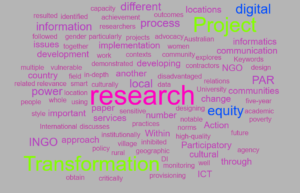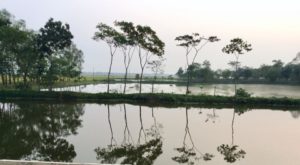The use of information technology is burgeoning for information and knowledge, and the practice of agriculture in not just developing countries, but the developing world as well. As an example of this, Oxfam and Monash University have been implementing an action research project, ‘Participatory Research and Ownership with Technology, Information and Change’ (PROTIC) in three fragile ecosystems (coast, sandy river bank and wetland) of Bangladesh.
Three hundred female farmers were provided with Smartphones with internet facility. Following the philosophy of Participatory Action Research (PAR) developed by Research Initiatives Bangladesh (RIB), and an analysis of group meetings held with the community, it is considered that the farmers are the social change agents or ‘animators’ in the process of developing transformative leadership for resilience towards the challenges in Bangladesh. The result of the activity is that there have been significant changes in farming practices in the project implementation areas and the voices of women (called animators in this article) have been reflected in the intervention.
There have been changes in the development of knowledge and skills by the women with Smartphones and information services, including changes in confidence, language, social status and technical skills of the community. The paper focuses what has been learned from group meetings held in the project areas as evidence for change. The paper in fact contains two perspectives. First, the primary level of research from a practitioner perspective (the Oxfam authors), and second, contextual remarks from an academic perspective by the third author. In practice, each has influenced the other’s work considerably over 4 years of the 5 -year project (2015-9)
Proceedings – 16th CIRN Conference 24-26 October 2018, Monash University Prato Centre, Italy : “Research, Practice and Creative Endeavour That Aim to Shape and Influence Policy and programs”.
Link to text






